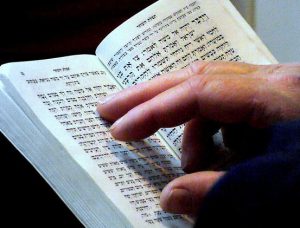 The Siddur, from the Hebrew root סדר meaning order, is a collection of prayers and blessings in a set order. The prayers and blessings on this site are taken from various siddurim. Many are passages directly from the Scriptures.
The Siddur, from the Hebrew root סדר meaning order, is a collection of prayers and blessings in a set order. The prayers and blessings on this site are taken from various siddurim. Many are passages directly from the Scriptures.
In the Hebrew text, the Divine Name is shown as יהוה without any vowel pointing used. In transliteration, it has been rendered as Adonai, and the English translation uses the word Lord. This is not intended to promote any particular protocol, and of course the reader is free to pronounce these words in whatever way is deemed suitable.
Select each title to see the liturgical item.
Ma Tovu
The Ma Tovu prayer is found in the Siddur (Jewish prayer book, from the Hebrew word meaning “order”) at the beginning of the Sabbath service. It is traditionally recited upon entering the synagogue or other place of worship.
It is interesting to note that this very first prayer recited begins with words uttered by the pagan prophet Balaam. The prayer continues with several passages from the Psalms expressing awe and reverence for the sanctuary and the presence of God Himself.
Barchu
The Barchu is the traditional call to worship or prayer. It is derived from 1 Chronicles 29:20, Then David said to all the assembly, “Now bless the LORD your God.” And all the assembly blessed the LORD, the God of their fathers, and bowed low and did homage to the LORD and to the king.
There are two parts to the Barchu. First, the leader instructs the congregation to “bless the Lord” using the imperative (command) form of the Hebrew word barak (Strong’s #H1288, “to bless God as an act of adoration”). The congregation responds by blessing the Lord.
Blessing of Messiah
Central to our worship is the understanding that Yeshua is the promised Messiah. Here we bless the Father for providing for us the only way of salvation through Him.
Shema
This declaration of faith is taken directly from Deuteronomy 6:4. It is recited while facing toward the city of Jerusalem, the location of the Temple. When King Solomon dedicated the Temple, in his prayer of dedication he said, Listen to the supplications of Your servant and of Your people Israel when they pray toward this place; hear from Your dwelling place, from heaven; hear and forgive (2 Chronicles 6:21). Yeshua quoted the Prophet Isaiah when He said, Is it not written, My house shall be called a house of prayer for all the nations? (Mark 11:17 quoting Isaiah 56:7).
The origin of the second part of the Shema is not known, though it may have originated in the Talmud. Because of the importance of the passage recited in the first part, this second line is usually said much more quietly. There are several ways this could be translated.
V’ahavta
The v’ahavta is taken directly from Deuteronomy 6:5-9. This passage follows the Shema in Scripture. Yeshua called this passage, including the Shema, “the foremost commandment” (Mark 12:29-30).
A portion of Leviticus 19:18 is recited immediately following the Deuteronomy passage as part of the v’ahavta. Yeshua added that this is the second greatest commandment, saying, “There is no commandment greater than these” (Mark 12:31).
V’shamru
Taken directly from Exodus 31:16-17, v’shamru is recited as a reminder of the importance of the Sabbath and the covenant.
